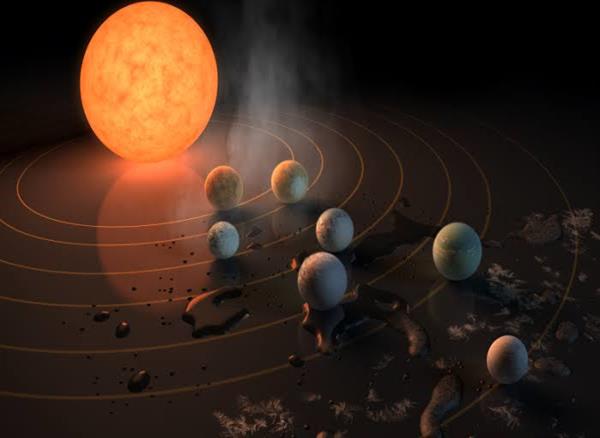Scientists are actively exploring the potential for in-situ resource utilization (ISRU) on other planets as a key aspect of future space exploration and colonization. ISRU involves utilizing local resources available on planetary surfaces to support human activities, reducing the reliance on Earth for supplies. Here's how scientists are exploring ISRU on other planets:

1. Resource Identification: Before ISRU can be implemented, scientists conduct extensive studies to identify and characterize the resources available on other planets. Robotic missions, such as the Mars rovers (e.g., Curiosity and Perseverance), analyze the composition of the Martian surface, searching for elements like water, minerals, and gases that can be used for various purposes.
2. Water Extraction: Water is a crucial resource for sustaining life and enabling human exploration. Scientists are exploring techniques to extract water from sources such as subsurface ice, polar ice caps, or hydrated minerals on planets like Mars. Methods being investigated include drilling, melting, and chemical extraction processes.
3. Atmospheric Resource Utilization: On planets with atmospheres, such as Mars, scientists are exploring the potential for extracting and utilizing gases like carbon dioxide (CO2) or nitrogen (N2). These gases can be processed to generate breathable oxygen, propellant for rockets, or even feedstock for manufacturing processes.
4. In-Situ Propellant Production: Producing propellant on other planets is a crucial aspect of enabling sustainable and cost-effective space exploration. Scientists are researching methods to extract and process resources to produce rocket propellant, such as liquid oxygen (LOX) and liquid hydrogen (LH2), which can be used for return trips or further exploration within the planetary system.
5. Building Materials: Utilizing local resources for constructing habitats and infrastructure is another area of focus. Scientists are investigating the feasibility of using regolith (the loose surface material) on other planets to create construction materials like bricks or concrete. Techniques such as sintering, 3D printing, or binding agents could be employed to transform regolith into building materials.
6. Energy Generation: Sustainable energy generation is vital for powering future missions and habitats on other planets. Scientists are exploring various options, including solar power, nuclear power, or even using the potential geothermal energy available in some planetary bodies.
7. Life Support Systems: In-situ resource utilization extends to supporting life on other planets. Scientists are studying ways to utilize resources for oxygen production, water recycling, and food cultivation. Technologies like closed-loop life support systems, hydroponics, and aeroponics are being investigated to create self-sufficient habitats.
8. In-Situ Science and Research: In addition to supporting human exploration, ISRU can facilitate scientific research by providing access to local resources for analysis. Scientists can utilize instruments and laboratories on-site to study planetary geology, astrobiology, and conduct experiments to deepen our understanding of other worlds.
The exploration of ISRU is an ongoing process that involves laboratory experiments, field simulations, and technology demonstrations. Mars serves as a primary target for ISRU research due to its similarities to Earth and the availability of resources. However, ISRU concepts and technologies are applicable to other planetary bodies, such as the Moon, asteroids, and even icy moons like Europa or Enceladus.
By developing the capability to utilize local resources, scientists aim to reduce mission costs, increase self-sufficiency, and enable sustainable long-duration missions on other planets. ISRU holds great promise for future human exploration and colonization efforts, allowing us to venture further into space while minimizing reliance on Earth for essential resources.